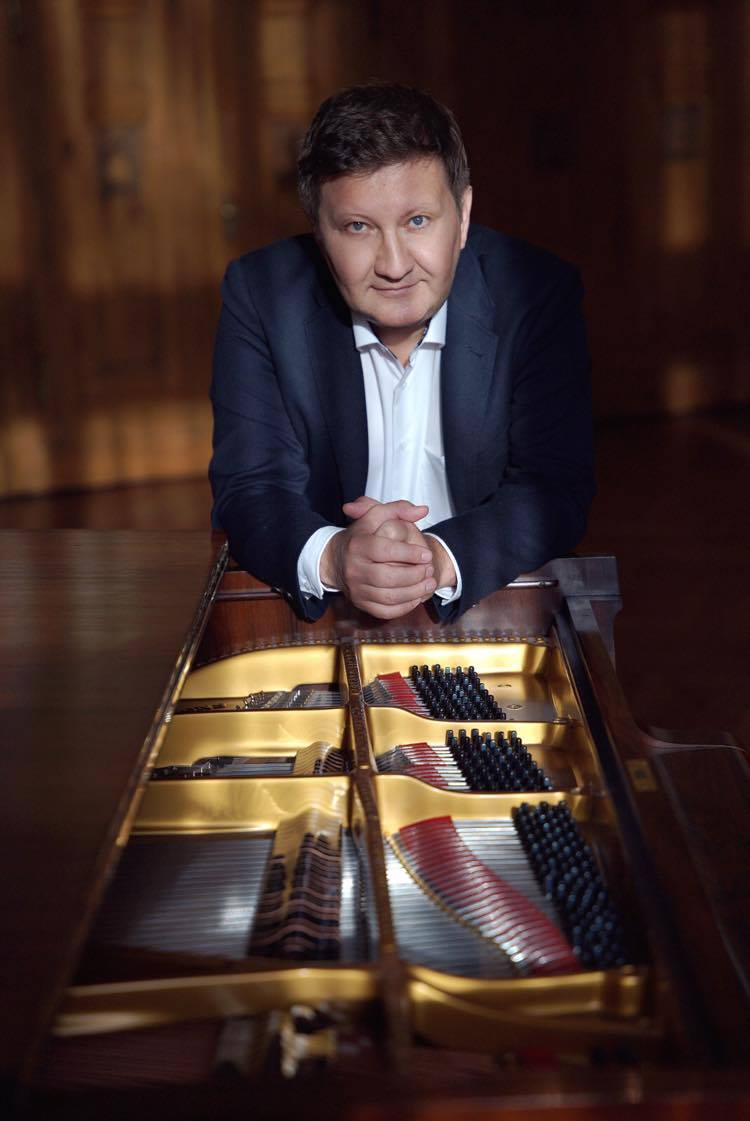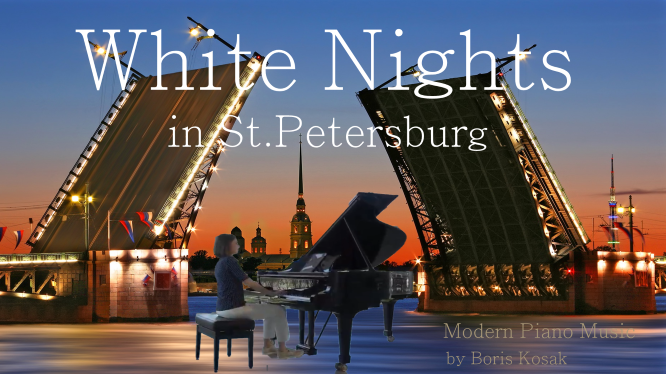About
Boris Kosak's way to classical music was mostly encouraged by his mother, herself a singer, conceding to the pleas of the six year old child and buying him a piano as a birthday present, encouraging his future as a musician.
The first compositional experiments started at the age of 13, and very soon he started to perform them publicly, gaining enthusiastic applause for his epically monumental works among which were twelve piano sonatas.From his father Boris Kosak inherited a strong interest in mathematics that accompanied him continuously from the first school years and brought him several prizes at regional maths and physics Olympics. At the age of 15 he had to choose between maths and music studies and the decision was in favor of music. 1994 Boris Kosak moved to Cologne where he studied composition with York Höller and electronic composition with Ulrich Humpert at the Music Univercity of Cologne. Simultaneously, he studied musicology as well as English and French philology at the University of Cologne.In Cologne, a stronghold of avantgard music, Boris Kosak quickly understood that the dominating rigid and strict atonalism is alien to him and he has to find a way apart of the mainstream tendencies in order to make innovation possible again. In this time he occupied himself intensively with different styles, eras, genres and art forms and all these various influences resulted in new very personal style combining tradition with modernity, the sophisticated with the entertaining in a well-balanced manner and it was the traditional Cologne Carneval that gave him one of the strongest inspiring impulses.
Not by chance among the first compositions in the new style were the piano concerto „Il carnevale di Colonia“, the violin concerto „Concerto in stile coloniale“, and the concerto for orchestra „Tusch“.Already during his studies, Boris Kosak showed a special interest in the music of Baroque epoch whose influence can be clearly recognized in many of his compositions, stylistically, as well as in the choice of genres, especially concerto and concerto grosso, musique de table and dance suite. Reviving the Baroque suite, Boris Kosak modernized it and writed a series of one-minute pieces like 25 „Amuse-bouches“ for piano, 25 „Petit-fours“ for violin and piano, 14 „Dim Sum“ for piano, 36 „Momenti intimi“ for violoncello and piano, and 25 „Bagatelles essentielles“ for viola and piano. All these pieces have programmatic titles and mostly synthaesthetic connections. A special predilection for the Baroque tradition of musique de table inspired several compositions combining culinary topics with the music and leads to the compositions like „Eine kleine Naschmusik“(„A little nosh music“) for violin and string ensemble, the concerto grosso „King Arthur's Table Music“, Biography6
„Straccia-Cello“ for cello and „Suite royale“ for piano. Some of the critics even started to call his music neobarock.
In the last years Boris Kosak writes several orchestral works, redefining modern symphonism in an integrational way, using the whole palette of expressive means available to the modern composer. Among them are t h r e e s y m p h o n i e s – Sinfonia in G Nr. 1, Craftworks Symphony Nr. 2, and Vienna Symphony Nr. 3, the symphonic poem „Black Forest“, the cello concerto „BarCellona concerto“, concerto for wind orchestra „Windworks“, monumental „Mozart Variations“ for orchestra, and the second piano concerto „Capriccio concertante“. Also the song cycle „The cycle of life“ about the things happening for the first time in life (the first breath, the first step, the first word, the first kiss etc.) was created in this time, as well as Mussorgsky / Kosak „Pictures at an exhibition. A repost“ – a highly experimental concerto grosso staying in the tradition of pasticcio (especially loved by young Mozart) and combining the original music of Mussorgsky with new soloist and orchestra parts and episodes.These works testify a mature master of the orchestra score and they were celebrated in concert halls all over the world: in Germany, France, The Netherlands, Russia, Italy, Spain, Poland, Romania, Bulgaria, USA, Brasil, Australia, China, and South Korea. His music is performed by famous ensembles including Ensemble Intercontemporain, London Sinfonietta, Ensemble Musikfabrik, Elision Ensemble, and Ensemble Modern.
For his original creative style and the highest quality of work, Boris Kosak is recognized as one of the most innovative musical talents of the contemporary generation who left a deep trail with his exciting and melodic scores, always winning a stunning applause and a sheer enthusiasm of the audience. He won several prestigious awards, including The Modern Composer's Award in Taiwan 2011, Ljubljana Award 2014, and The Best Modern Composition in Hong Kong 2015. Several CD recordings with music by Boris Kosak have been released in Germany and Netherlands. In spring 2021 a new CD will be released with the piano music performed by the composer himself.
2016 Boris Kosak moved to Hamburg where he is engaged in several new projects for orchestra and the opera of Hamburg.

